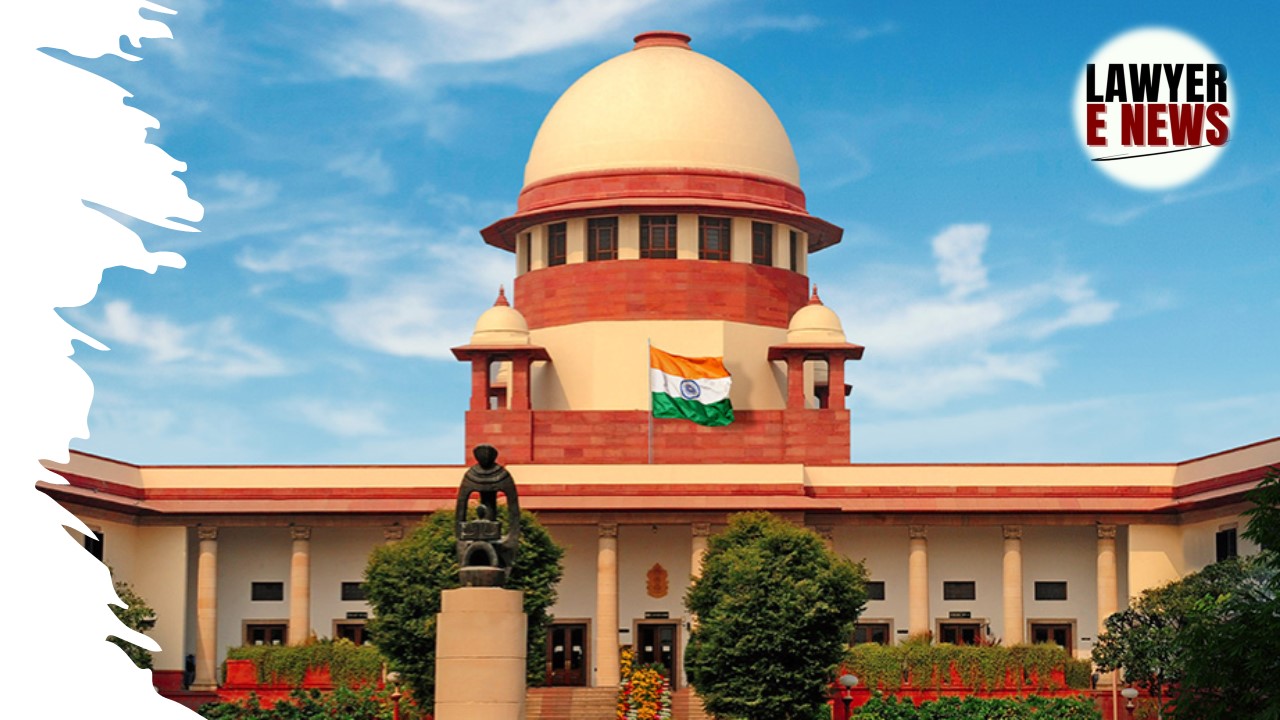-
by Admin
15 February 2026 5:35 AM



On September 13, 2024, the Supreme Court of India delivered a crucial judgment in the case of Sri Siddaraja Manicka Prabhu Temple vs. The Idol of Arulmighu Kamakala Kameshwarar Temple. The Court affirmed the Division Bench of the Madras High Court's decision that the disputed immovable property adjacent to the Kamakala Kameshwarar Temple is a trust property, not under the absolute ownership of the appellant. This ruling underscored the significance of trust deeds and compromise decrees in determining the nature and management of properties linked to religious institutions.
The origin of the dispute dates back to the early 20th century. The property in question, located next to the Kamakala Kameshwarar Temple, was initially owned by Rai Raja Eswardoss Diawanth Bahadur. After his demise, his son, Mr. T. Lakshmidoss, and grandson, Mr. T. Venkataprasad, inherited the property. They were declared insolvents in 1914, leading to the possession of the properties by the Official Assignee.
In 1917, the property was sold to Mr. W. Ramakrishna Lala, who subsequently executed a Trust Deed, appointing trustees for the properties. In 1924, following another insolvency of the original owners, the Official Assignee intervened, leading to a compromise that was formalized in the Decree dated November 26, 1929. This decree was central to the legal dispute, as it outlined the conditions under which the property was to be managed and used.
The core legal issue revolved around the interpretation of the 1929 Compromise Decree and the Trust Deed of 1917. The appellant, Sri Siddaraja Manicka Prabhu Temple, argued for absolute ownership of the property, while the respondent, The Idol of Arulmighu Kamakala Kameshwarar Temple, contended that the property was held in trust and not under the appellant's absolute ownership.
The nature of the property as defined in the Trust Deed and Compromise Decree.
Whether the head of the Guru Manicka Prabhu Temple held the property in an absolute capacity or as a trustee.
The implications of earlier legal proceedings, including whether the current case was barred by res judicata.
Analysis of Trust Deed and Compromise Decree: The Supreme Court's judgment hinged on the interpretation of the Trust Deed executed in 1917 and the Compromise Decree of 1929. The decree specified that the property would vest in the spiritual head of the Guru Manicka Prabhu Temple for the benefit of the temple and the Kamakala Kameshwarar Temple, with the income being used for their maintenance and upkeep. The Court emphasized that this arrangement clearly indicated a trust, rather than absolute ownership.
Role as Trustee: The Court noted that the appellant's position was limited to that of a trustee. The property was never intended to be held as an absolute asset by the appellant. The head of the Guru Manicka Prabhu Temple had responsibilities toward the property, primarily to use the income for the temples' upkeep and maintenance, as outlined in the compromise decree.
Exclusion of Schedule ‘B’ Properties: The decree distinguished between properties included in Schedule 'A' and 'C', which remained trust properties, and those in Schedule 'B', which were excluded. The suit property fell under Schedule 'A', further reinforcing its status as a trust property.
Res Judicata Argument Rejected: The appellant's argument that the current proceedings were barred by res judicata was dismissed. The Court clarified that previous judgments addressed whether the Kamakala Kameshwarar Temple was a public or private institution, which was separate from the present issue of property ownership. Thus, the current suit was not barred by earlier proceedings.
Upholding the High Court's Decision: The Supreme Court agreed with the findings of the Division Bench of the Madras High Court. It concluded that the suit property continued to be part of the trust as established by the Trust Deed of 1917 and the Compromise Decree of 1929. The appellant, therefore, was not the absolute owner but held the property in a trustee capacity.
The Supreme Court's decision underscores the critical role of trust deeds and compromise decrees in defining the nature and management of properties associated with religious institutions. By affirming the trust nature of the suit property, the Court has reinforced the principle that properties designated for specific religious or charitable purposes cannot be claimed as absolute assets by individuals, even if they hold significant positions within the religious institution.
Date of Decision: September 13, 2024
Sri Siddaraja Manicka Prabhu Temple vs. The Idol of Arulmighu Kamakala Kameshwarar Temple
